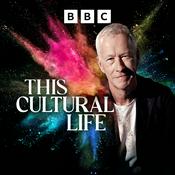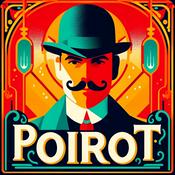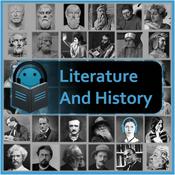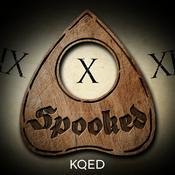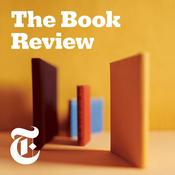142 episodes
Episode 130 - Perfect in All His Ways: Understanding God's Immutability Across Scripture
19/2/2026 | 31 mins.Have you ever wondered what it means when the Bible says "God does not change"? Does this make God static and unresponsive to our world? Or is there a deeper truth that offers profound security in our chaotic lives?
The immutability of God—Father, Son, and Holy Spirit—serves as an unshakable foundation for Christian faith. Unlike philosophical abstractions that portray God as timeless and unmoved, Scripture presents a living God who acts dynamically throughout history while remaining perfectly consistent in character. This perfect consistency means the Trinity never deteriorates, never compromises morally, and never becomes less than absolutely trustworthy.
We explore Nebuchadnezzar's remarkable prayer in Daniel 4, where he recognizes that "no one can hold back God's hand." This sovereignty isn't cold determinism but the warm assurance that nothing in creation can diminish or corrupt divine perfection. From creation through redemption, everything the Trinity does manifests perfect wisdom, justice, and love.
Perhaps most powerfully, we consider how Christ's incarnation and crucifixion—far from compromising divine perfection—actually reveal it most clearly. When religious leaders saw Jesus as imperfect or sinful, they were exposing their own flawed judgment, not identifying any deficiency in him. Even at the darkest moment on the cross, God's ways remained perfect.
This biblical understanding offers tremendous pastoral comfort. In a world where even our best human leaders fail us, where institutions crumble, and where our own strength proves insufficient, the unchanging Trinity provides a rock to which we can flee. Jesus Christ is indeed "the same yesterday, today, and forever"—not as a philosophical abstraction, but as our living, faithful Savior.
Join us as we distinguish between philosophical speculations about divine changelessness and the Bible's life-giving portrait of a God whose perfect character never wavers, even as He acts dynamically to accomplish our salvation.
The theme music is "Wager with Angels" by Nathan MooreEpisode 129 - Can God Decompose?! : Rethinking God's Immutability Through Biblical Lenses
12/2/2026 | 39 mins.What does it truly mean when we say "God does not change"? This profound question takes us on a journey through ancient philosophy, biblical revelation, and the very nature of creation itself.
We begin by examining a fascinating dialogue between Socrates and Cebes about what things are made of, and how this relates to decomposition and change. For Plato and his followers, composite things inevitably decay, while simple things remain unchanging. This philosophical framework eventually led many Christian thinkers to describe God as "simple" – made of one indivisible substance – to safeguard divine immutability.
But does this align with biblical revelation? The podcast challenges us to reconsider our assumptions by exploring what Scripture actually says about decay and change. Romans 8:20-21 presents a revolutionary perspective: "The creation was subjected to frustration, not by its own choice." This suggests decomposition isn't the natural state of the cosmos but rather a temporary condition imposed by God in response to sin – an "unnatural mode of existence in a fallen world."
This distinction revolutionizes how we understand God's unchanging nature. If decay isn't intrinsic to compositeness but a consequence of alienation from God, can we safely draw conclusions about divine nature based on observations from our fallen world? The resurrected body of Jesus offers a powerful counter-example – a composite reality that cannot decay or die.
We also explore concerns about viewing God as "modular," with separate components for power, wisdom, or righteousness. While agreeing God doesn't receive attributes from more fundamental sources, the podcast questions whether this necessitates describing God as "simple" in the philosophical sense.
By examining early Christian responses to Gnosticism and various theological traditions, we're invited to reconsider whether philosophical concepts of divine simplicity are truly grounded in Scripture or represent an importation of Greek thought into Christian theology. Perhaps God's unchanging faithfulness stems not from being made of a "non-composite divine material," but from the eternal life and relationship shared within the Trinity.
How might this reshape your understanding of God's immutable nature? Join the conversation as we seek to ground our theology in biblical revelation rather than philosophical speculation.
The theme music is "Wager with Angels" by Nathan MooreEpisode 128 - Divine Simplicity: Tracing the Ancient Roots of God's Immutability
05/2/2026 | 32 mins.What does it mean when we say God doesn't change? Behind this seemingly straightforward theological statement lies centuries of philosophical speculation that many Christians have never examined.
In this thought-provoking exploration of divine immutability, we uncover the ancient philosophical roots of the doctrine that God cannot change. While many assume this teaching comes directly from Scripture, we trace its development through Platonic philosophy and medieval scholasticism. At the heart of this discussion is the concept of "divine simplicity" – the notion that God is not composed of parts or separate attributes, but is rather one unified essence.
This idea, far from being uniquely Christian, emerged from Plato's observations about decomposition and change in the physical world. Plato reasoned that things decay because they break down into constituent parts, therefore anything that doesn't change must be made of only one substance. This philosophical framework was later adopted by Christian theologians like Thomas Aquinas, becoming dogma in Roman Catholicism while generating significant debate in Protestant traditions and outright rejection in Eastern Orthodoxy.
The philosophical implications are staggering. If God's essence is truly simple, then all divine attributes must be identical – love must be the same as wisdom, which must be the same as power. This creates apparent contradictions that many find problematic. More fundamentally, we must ask whether Scripture itself presents change as resulting from decomposition, as Plato suggested, or whether it offers an entirely different understanding of God's unchanging nature.
Join us as we disentangle biblical truth from philosophical speculation and seek a more faithful understanding of what it means to worship an unchanging God who is Father, Son, and Holy Spirit.
The theme music is "Wager with Angels" by Nathan Moore- Does God have conversations? It seems like a simple question with an obvious biblical answer, yet it opens up one of the most profound theological tensions in Christian thought.
The concept of divine immutability—that God does not change—has traditionally been linked with the philosophical idea that God exists outside of time altogether, in an "eternal moment" without sequence, without before and after. But this raises a crucial question: how do we reconcile this timeless vision of God with the biblical portrayal of the Trinity in active relationship? Throughout Scripture, we witness the Father speaking to the Son, the Son responding to the Father, and both remembering the past and looking forward to the future.
When we explore these divine conversations, we find ourselves confronting fundamental questions about the nature of personhood itself. If there is no genuine interaction between Father, Son, and Spirit—if they share a single consciousness with no sequential dialogue—then what remains of the Trinity as three distinct persons? And if God cannot engage in sequential interactions within the Godhead, how can He meaningfully engage with us, His time-bound creatures? Does God actually respond to our prayers, or is that merely how we perceive things from our limited perspective?
The incarnation presents a particularly striking challenge to the timeless view. Scripture clearly teaches that the Son, who was not previously human, became flesh at a specific moment in history. He lived, died, and rose again—a sequence of events that cannot be flattened into an eternal moment without doing violence to the biblical narrative.
This tension between philosophical timelessness and biblical relationality isn't just an academic exercise—it shapes how we understand our relationship with God and how we read Scripture itself. Are the Bible's descriptions of God's interactions merely "baby talk" accommodations to our limited understanding? Or are they faithful revelations of who God truly is?
Join us as we navigate this theological tightrope, examining diverse Christian perspectives and considering whether we've sometimes allowed Greek philosophical concepts to override the clear testimony of Scripture. Subscribe now to engage with these profound questions that challenge us to think more deeply about the God who reveals Himself as both transcendent and intimately relational.
The theme music is "Wager with Angels" by Nathan Moore - A sealed prophecy said to come from Adam. Royal visitors who call a newborn “true God” without hesitation. A blade that cannot cut divine flesh. From the first minute, we dive into the Armenian Infancy Gospel’s startling claims and the older currents that shaped Christian imagination: a six-thousand-year promise, the symbolism of the sixth day, and why timekeeping itself becomes a theological thread in the Nativity.
We walk with Joseph as he hides the Magi’s gifts and quietly provides for the poor, and we meet Josies, the younger son who guards Mary and nearly joins the Twelve. The scene in the cave unfolds with intimacy and weight: fifteen dignitaries kneel, not to poetry but to a person they confess as God. That confession challenges the idea that a high view of Jesus came late; here it sounds native and immediate, woven into the earliest stories.
Then the narrative tests modern nerves. The circumcision scene raises a paradox: can incorrupt flesh be wounded, and on what terms? We explore consent, prophecy, and an old strand of sacred craftsmanship linked to Wayland Smith, a figure who, in medieval art, sometimes travels with the Magi. The point is not myth for myth’s sake; it is metaphysics and devotion. If no part of the Word-made-flesh sees decay, liturgy, craft, and courage converge to explain how the Passion could happen by design, not by force.
We close with the temple presentation, a year of hidden life near the cave, and a hard look at Herod’s massacre, including the tradition that Zechariah, father of John the Baptist, dies at the altar to protect his son. The arc is fierce and tender: a world of kings and smiths, prophets and parents, calendars and covenants, all bending toward a child who restores Adam and renews creation. If you’re ready to revisit the Magi with fresh eyes and deeper sources, press play and journey with us. If this episode reshaped your view of Christmas, subscribe, share it with a friend, and leave a review telling us which insight stayed with you.
The theme music is "Wager with Angels" by Nathan Moore
More Arts podcasts
Trending Arts podcasts
About The Christ Centred Cosmic Civilisation
Christ is the One in Whom in all things consist and humanity is not the measure of all things. If a defining characteristic of the modern world is disorder then the most fundamental act of resistance is to discover and life according to the deep, divine order of the heavens and the earth. In this podcast we want to look at the big model of the universe that the Bible and Christian history provides.It is a mind and heart expanding vision of reality.It is not confined to the limits of our bodily senses - but tries to embrace levels fo reality that are not normally accessible or tangible to our exiled life on earth.We live on this side of the cosmic curtain - and therefore the highest and greatest dimensions of reality are hidden to us… yet these dimensions exist and are the most fundamental framework for the whole of the heavens and the earth.Throughout this series we want to pick away at all the threads of reality to see how they all join together - how they all find common meaning and reason in the great divine logic - the One who is the Logos, the LORD Jesus Christ - the greatest that both heaven and earth has to offer.Colossians 1:15-23If you can support what we do, please give to the Biblical Frameworks charity so that these resources can continue to be madehttps://www.stewardship.org.uk/partners/20098901
Podcast websiteListen to The Christ Centred Cosmic Civilisation, Style-ish and many other podcasts from around the world with the radio.net app
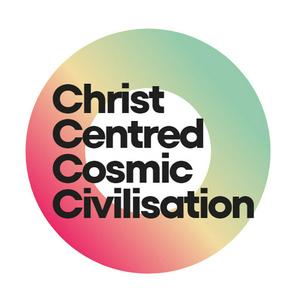
Get the free radio.net app
- Stations and podcasts to bookmark
- Stream via Wi-Fi or Bluetooth
- Supports Carplay & Android Auto
- Many other app features
Get the free radio.net app
- Stations and podcasts to bookmark
- Stream via Wi-Fi or Bluetooth
- Supports Carplay & Android Auto
- Many other app features


The Christ Centred Cosmic Civilisation
Scan code,
download the app,
start listening.
download the app,
start listening.










